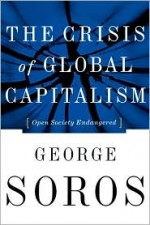20 results
Fallibility, Reflexivity, and the Human Uncertainty Principle
The Journal of Economic Methodology, the leading peer-reviewed journal on the philosophical foundations and methodological practice of economics, has published a special issue devoted to George Soros’s theory of reflexivity. The issue contains a new article by Mr. Soros articulating his most recent thinking on reflexivity and fallibility, the role of those concepts in social science, and their contribution to events such as the 2008 financial crisis and euro crisis. The issue also contains contributions, responses and critiques from 18 leading scholars in economics and the history and philosophy of science.A French Cure for the Resource Curse
The campaign to ensure that companies engaged in extractive activities disclose all of their payments in their host countries is gaining momentum – and France is leading the effort. President Nicolas Sarkozy should be applauded for supporting a new initiative promoting strict transparency standards for petroleum, gas, and mining companies listed on European stock exchanges.Why I Support Legal Marijuana
Our marijuana laws are clearly doing more harm than good. The criminalization of marijuana did not prevent marijuana from becoming the most widely used illegal substance in the United States and many other countries. But it did result in extensive costs and negative consequences.China Must Fix the Global Currency Crisis
I share the growing concern about the misalignment of currencies. Brazil’s finance minister speaks of a latent currency war, and he is not far off the mark. It is in the currency markets where different economic policies and different economic and political systems interact and clash.Remarks delivered at the INET Conference at King’s College
Economic theory has modeled itself on theoretical physics. It has sought to establish timelessly valid laws that govern economic behavior and can be used reversibly both to explain and to predict events. But instead of finding laws capable of being falsified through testing, economics has increasingly turned itself into an axiomatic discipline consisting of assumptions and mathematical deductions – similar to Euclidean geometry.America Must Lead a Rescue of Emerging Economies
The global financial system as it is currently constituted is characterised by a pernicious asymmetry. The financial authorities of the developed countries are in charge and they will do whatever it takes to prevent the system from collapsing.

The Crisis of Global Capitalism: Open Society Endangered
Written in 1998, Soros analyzes an earlier global financial crisis and demonstrates how faulty theoretical assumptions combined with human behavior had led to the turmoil. He suggests remedies to the meltdown, based on his years of experience as a financier and philanthropist.